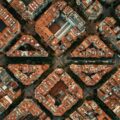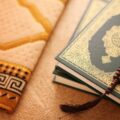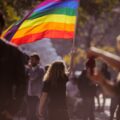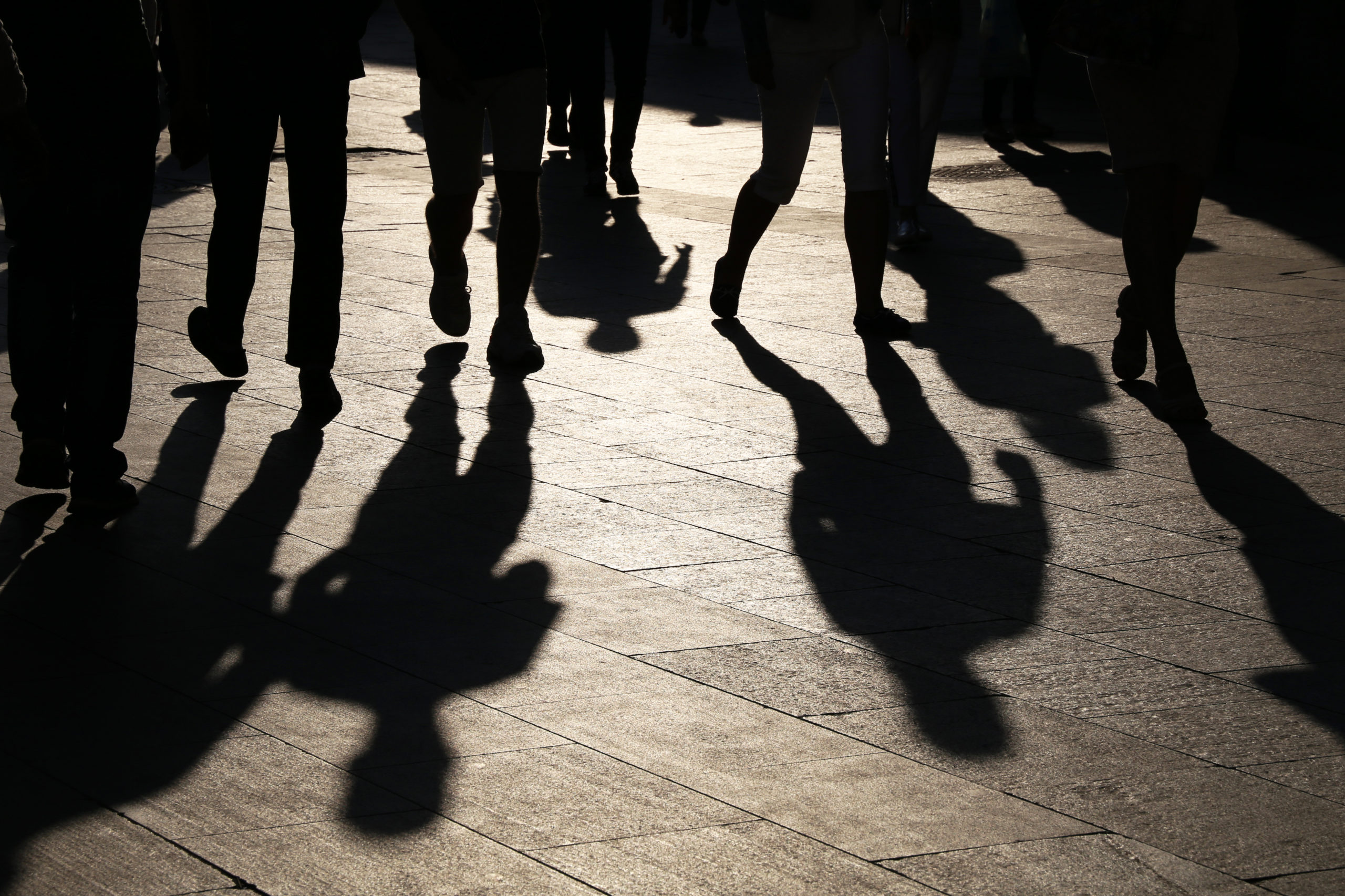(In)tolerance as the norm
(In)tolerance as the norm
Over the past years, the Dutch identity of tolerance toward religious minorities has shifted towards an identity of being openly discriminatory. How did this happen?
This article is part of our series on normativity in Europe.
The Netherlands is a secularised, liberal society that highly values freedom. Religious freedom, freedom of speech, or freedom of sexuality: the Dutch claim to have it all. Yet, even though the country is secular, its Christian roots can still be found all around. For example, each year on Maundy Thursday, the suffering and death of Jesus Christ are reenacted through a big musical play.[1] While the Christian roots are not always as visible, Christianity is still the norm. However, over the past years, the Dutch identity of tolerance toward religious minorities has shifted towards an identity of being openly discriminatory.[2] How did this happen?
“How do you feel about ISIS?”
The ‘othering’of religious or ethnic minorities became clearly visible during Dutch colonial rule. Othering means creating binary differences between ‘us’ and ‘them’, and seeing the minority group as the Other. The Other is not just seen as being inherently different from the dominant group, but also as inferior.[3] Thus, a power imbalance is created.
In the Netherlands, the danger lies within the normalisation of this process and can be clearly seen in the treatment of Dutch Muslims. The discrimination of Dutch Muslims is subtle, interwoven within daily activities.[4] It can be found on the work floor, for example, where Dutch Muslims have to defend themselves from colleagues asking intrusive questions. From “How do you feel about ISIS?” to “Are you against gay marriage?”, Muslims are tested to see whether they share Dutch secular values.[5] Such discriminating practices have become normal. Negative framing by the media and politicians openly attacking Islam only add fuel to the fire.[6]
An example can be found in the electoral program of the Dutch Party for Freedom (PVV). The leader of the PVV, Geert Wilders, declares, “Islam is in the first place not a religion, but the most violent political ideology that exists.”[7] When such statements become normal, discrimination against Muslims becomes the norm with no one there to fight it. How does this change the understanding of so-called Dutch tolerance?
To each their own (pillar)
The Dutch attitude towards tolerance could be seen as passive. Tolerance, in this case, does not mean socialising with the other but being indifferent toward them.[8] The indifferent attitude of the Dutch can be traced back to its history as a pillarised society. The construction of pillars within Dutch society has been the dominant discourse for many years.[9] Each religious or political group formed its own pillar with its own schools, churches, and rules. The main purpose of this pillarised system was to prevent conflicts between the different religious and political groups.[10]
When more and more Muslim migrants came to the Netherlands as guest workers in the late 1950s and 1980s, they started their own pillar.[11] At the same time, Dutch society tried to de-pillarise and shifted their focus to a more individual, autonomous society. The creation of the new pillar by Muslims created a sense of uneasiness amongst the wider Dutch community.[12] The Dutch felt like the Muslim migrants represented a threat and that the Muslim minority was incapable of assimilating into the Dutch culture. At the same time, the Dutch were not very welcoming to the Muslim migrants, since they believed they were here for a temporary stay.[13] These negative feelings created even more distance between the different religious groups. What are the consequences of this religious segregation within Dutch society? Segregated spaces can result in misunderstanding people outside of one’s own group due to a lack of language sensitivity. It can also lead to mistrust and conflicts.[14]
Bridging the gap
The most important question remains: how can the Dutch bridge these differences and move toward an inclusive and actively tolerant society? A helpful method to bring people of different religious backgrounds into contact with each other is interreligious dialogue. The first official interreligious encounters in the Netherlands took place during the first half of the 1970s.[15] Most of the interreligious groups were started by Christians, who still formed the majority of the Dutch population at the time. One of the first attempts at an interreligious group was the Joden-Christenen-Moslims (Jews-Christians-Muslims / JCM). It was founded by Dirk Cornelis Mulder, who was a professor at the Vrije Universiteit Amsterdam. He wanted Christians to act as a bridge between Jews and Muslims. However, the group was not successful at the time because the Christians outnumbered the Muslims and the Jews. Moreover, the Muslim community did not have representatives to send to those meetings.[16]
Even though there were a number of these failed first attempts, they eventually led to the creation of multiple interreligious institutions. The Dutch Council of Churches started a section for interreligious encounters, and one for a plural society that helped migrants without looking at their religious background.[17]
Considering the diverse and secular nature of society in the Netherlands, interreligious dialogue should not only stay within houses of worship, but should also gain a place within education.[18] Universities have a role in challenging structures of exclusion, increasing inclusivity, and connecting these structures to historical and societal frameworks. One way of doing this might be to integrate interreligious dialogue within a school’s curriculum, and create safe spaces for reflection.[19] As Ghorashi puts it: “Is there any place left in our universities for vulnerability, solidarity, and humanity when we reproduce structures that praise individual perfection, over-assertiveness, and over-achievement as sources of success and almost single sources of promotion?”[20] Interreligious dialogue requires solidarity, a strong communal feeling, and spaces where one feels safe enough to be vulnerable.
Working toward an active tolerance
To conclude, the discrimination of the Muslim ‘Other’ has become more normal in the Netherlands over the past years. Even though the Netherlands values freedom of religion as well as freedom of speech, the attitude towards Muslims has become more negative over the past years within Dutch society. The negative representation of Muslims in the media plays a part in this and so do anti-Islamic statements by politicians.[21] Tolerance in the Netherlands nowadays is not about interacting with each other, but about accepting the existence of the other.[22] To build bridges between the different religious and social groups, there should be more space for dialogue.[23] Interreligious dialogue might help in challenging the dominant narrative and working toward a new norm: one of active engagement.
Our team of analysts conducts research on topics relating to religion and society. In the second half of 2021, we are focusing on the subject of normativity. Find out more on the EARS Dashboard.
Sources
[1] Recente media van The Passion
[2] Ghorashi, H. (2018). Decolonizing the islamic other: the changed conditions of critical thinking. Smash the Pillars, 185-197.
[3] Ibid.
[4] Ibid.
[5] Veel moslimdiscriminatie op het werk: ‘Hoe vaak ik wel niet heb moeten uitleggen wat ik vond van IS’
[6] Onderzoek bevestigt: negatieve berichtgeving over moslims domineert
[7] Electoral program PVV, 2021.
[8] Essed, P., & Hoving, I. (Eds.). (2014). Dutch racism (Ser. Thamyris / intersecting: place, sex and race, 27). Rodopi B.V.
[9] Ghorashi, H. (2014). Racism and “the Ungrateful Other” in the Netherlands. Dutch racism, 27(27), 101-116.
[10] Ibid.
[11] Ghorashi, H. (2018). Decolonizing the islamic other: the changed conditions of critical thinking. Smash the Pillars, 185-197.
[12] Ibid.
[13] Ghorashi, H. (2014). Racism and “the Ungrateful Other” in the Netherlands. Dutch racism, 27(27), 101-116.
[14] Ibid.
[15] Bakker, F. L. (2014). Inter-religious dialogue and migrants: the case of the Netherlands. Mission Studies, 31(2), 227-254.
[16] Ibid.
[17] Ibid.
[18] Ghorashi, H. (2018). Decolonizing the islamic other: the changed conditions of critical thinking. Smash the Pillars, 185-197.
[19] Ibid.
[20] Ibid.
[21] Onderzoek bevestigt: negatieve berichtgeving over moslims domineert
[22] Essed, P., & Hoving, I. (Eds.). (2014). Dutch racism (Ser. Thamyris / intersecting: place, sex and race, 27). Rodopi B.V.
[23] Bakker, F. L. (2014). Inter-religious dialogue and migrants: the case of the Netherlands. Mission Studies, 31(2), 227-254.






